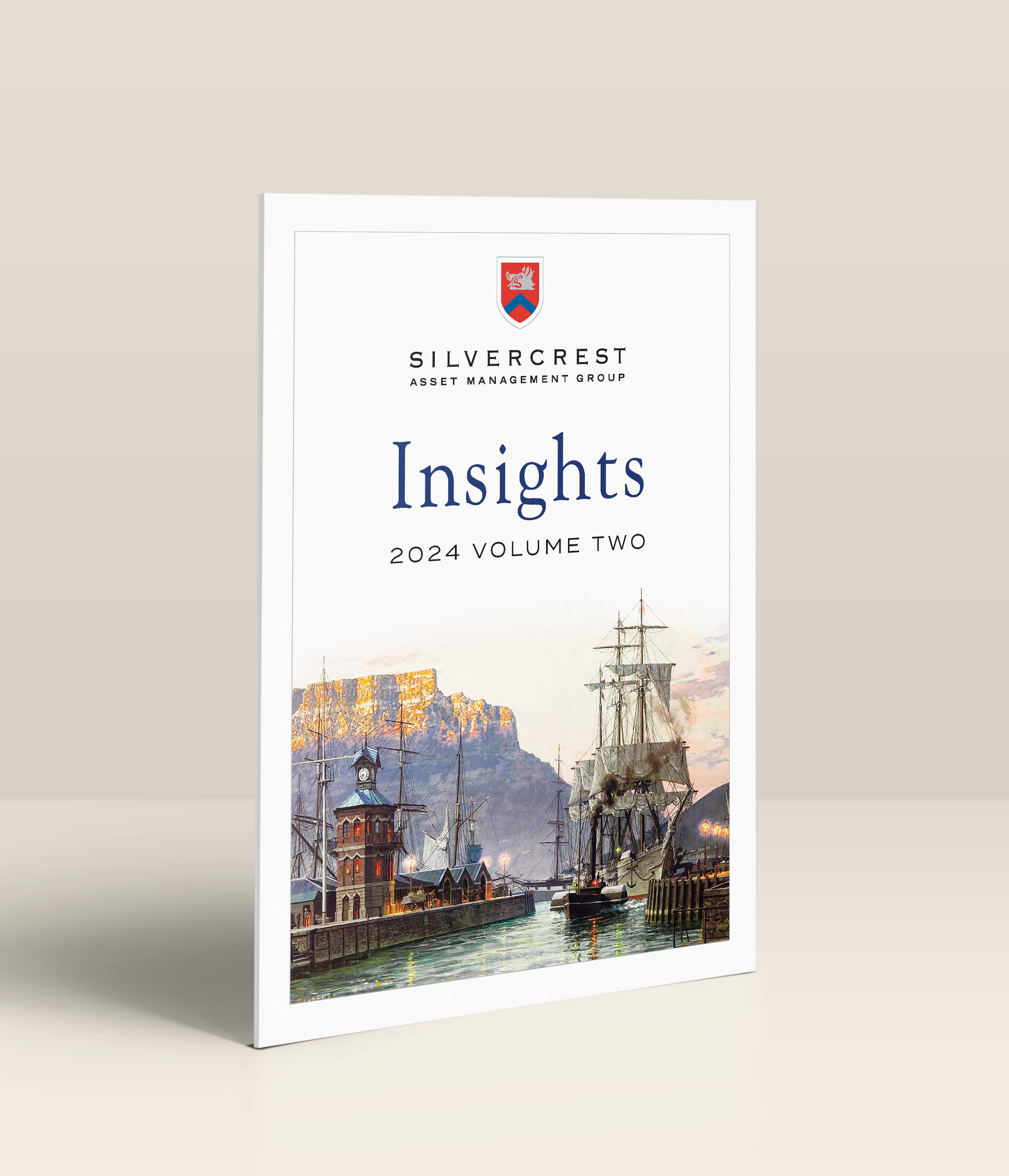The renowned father of value investing, Benjamin Graham, once said, “The investor’s chief problem—and even his worst enemy—is likely to be himself.”
There is a distinction between being intelligent and being rational. Our own experience tells us that we often make important decisions driven by emotion and based on intuition or impulse rather than through methodical in-depth analysis. It is much more exciting to invest in an “exclusive” deal or one that reportedly has made family, friends or people we admire, wealthy. The urge to “get in” takes precedence over prudence and due diligence. The “secret sauce” that makes these investments so lucrative and desirable is a key ingredient in frauds like Madoff and Theranos. In these frauds, outsiders were not allowed to see or obtain answers about the firm’s strategy (Madoff) or revolutionary blood-testing technology (Theranos). The anxiety of passing on an inimitable investment opportunity obscures an investor’s capability to ask details about the potential risks.
Falling for a fraud does not only apply to an individual investor. More shockingly, it also applies to a wide range of financial firms of various sizes—firms that are entrusted with hundreds of millions of clients’ assets. The Malaysian 1MDB Fund made headlines due to the involvement of Goldman Sachs and famous Hollywood personalities. This scandal was portrayed in the book, Billion Dollar Whale, released last year. Investors in 1MDB bonds were sophisticated financial institutions who bought these bonds from 1MDB’s underwriter, Goldman Sachs. Some of these institutions bought the bonds on behalf of their emerging market bond funds. Few experiences can be worse than waking up one day to find out that a substantial portion of one’s net worth is gone and worse yet, due to an under researched investment made by an investment firm you trusted. How could this have happened and more importantly, how can it be prevented from happening to us? The answer is not easy as even sophisticated investors are emotional human beings prone to biases.
At Silvercrest, we ask ourselves, could we fall for 1MDB or Theranos? We believe the answer is no, not because we know better, but because we know what to look for and when to pass on that once in a lifetime investment opportunity. To mitigate human biases, we have thoughtfully and methodically built processes and systems with checks and balances, which we believe, go a long way to prevent financial disasters like those mentioned above.
The anxiety of passing on an inimitable investment opportunity obscures an investor’s capability to ask details about the potential risks.
All investment managers we select undergo two rigorous and separate evaluations: one focused on the manager’s investment and risk management processes and the other focused on the manager’s operational infrastructure. As part of the former, we run quantitative analyses of historical performance which raises red flags if a fraud-like pattern is detected. We look beneath the surface and conduct in-depth operational due diligence of managers that pass our initial quantitative and qualitative screens. After the screening process, the next step, which is essential in our decision making, is an on-site visit to the manager. Our goal is to meet the operational professionals with the aim of observing and understanding the firm’s culture and infrastructure. We are tasked with verifying, in person, all the details and nuances of the information we received prior to our on-site visit. A careful review of the manager preceding our meeting allows us to formulate a good idea of what to expect and the areas we want to focus on.
On paper and on the surface, a manager may present the picture of a solid operation with qualified individuals and a roster of well-known service providers (e.g. Big Four auditing firm, top-tier fund administration, etc.). This initial impression may lead investors to have confidence in a manager and assume the manager is running a legitimate operation. However, based on decades of experience in this arena, we recognize that in most major financial frauds, there were well-known service providers associated with it, lending the operation unwarranted credibility. One of the most notable examples is Enron, which caused billions in losses to investors and brought down one of the largest and most reputable auditing firms, Arthur Anderson. The top executives at Enron had impeccable pedigrees from renowned institutions such as Harvard and Northwestern.
In this example and in virtually all financial frauds, numerous red flags were ignored along the way. After all, it is human nature to make assumptions about an investment based on the brand names associated with it. Our team is fully aware of this human bias and accordingly we approach each manager due diligence with a healthy dose of professional objectivity. The great President Ronald Reagan’s immortal words, “trust but verify”, are a fundamental principle in conducting operational due diligence. We initially take information at face value, but we verify.
What Are Some Key Characteristics Of “Best In Class” Managers That We Seek To Find?
- Audited financial statements, together with offering documents and other marketing materials that correspond with the manager’s representations
- Alignment of interests between the manager and investors evidenced by significant manager net worth invested side-by-side
- High level of professionalism by all members of the firm
- Strong culture of compliance established from the top down that positively impacts enterprise risk management
- Firm structure with appropriate segregation of duties, quality of professionals and third-parties engaged
- Low personnel turnover especially in key roles such as CFO, COO and CCO
- Policies and procedures established and followed to minimize conflicts of interests
- High level of transparency demonstrated by the firm’s accessibility in providing information and straight forward answers to questions
- Ability to independently verify the information provided by the manager with third-party service providers
- Solid track record of open and timely communication with investors substantiated through our conversations with current and past investors
- Online background and regulatory checks on key management members and the firm
Alternatively, What Are Some Characteristics That Would Cause Serious Concern And Lead Us To Walk Away?
- The absence of an independent third-party administrator and/or custodian
- Apathetic approach to compliance, policies and procedures
- Lack of competence by members of the firm evidenced by inconsistent responses to key questions regarding their operational functions
- High turnover of key professionals paired with an unsatisfactory explanation for departures
- Lack of transparency demonstrated by reluctance to provide information or providing limited/insufficient information and access to third-parties for verification
- Unsatisfactory results of reference, online background and regulatory checks that uncover material issues not addressed by management during our conversations
The great President Ronald Reagan’s immortal words, “trust but verify”, are a fundamental principle in conducting operational due diligence.
Some firms may not possess all the qualities we would ideally like to see in a “best in class” manager due to various reasons such as size and stage of development. Smaller firms may not have the resources to hire dedicated roles such as a CCO therefore they may have a COO or CFO with a dual role. In these circumstances, we look for mitigating factors such as the engagement of a third-party compliance consultant to assist the firm on compliance issues and independent monitoring and oversight. Potential disqualifying issues like this highlight the importance of getting to know the manager through the on-site visit. We can make a personal assessment of their operational standards that might not be observable on the surface. Conversely, the on-site visit can reveal the flaws in a manager that appear operationally strong on paper.
Once our operational diligence work is complete, we meet to discuss our findings internally as part of the Manager Selection Group. At this meeting, investment and operational diligence converge with the purpose of approving a manager for client investment. An essential key to our process is vetting out any potential business risks associated with the managers we recommend. Operational deficiencies always surpass investment opportunities in our decision-making process. This standard is emphasized by the veto power given to operational diligence on all manager approvals. At the end of the day, it boils down to the manager’s culture of doing things the right way from which all else falls into place. We expect of others nothing less than what we value most in ourselves.
This communication contains the personal opinions, as of the date set forth herein, about the securities, investments and/or economic subjects discussed by Mr. Agnello and Ms. Capatori. No part of Mr. Agnello’s or Ms. Capatori’s compensation was, is or will be related to any specific views contained in these materials. This communication is intended for information purposes only and does not recommend or solicit the purchase or sale of specific securities or investment services. Readers should not infer or assume that any securities, sectors or markets described were or will be profitable or are appropriate to meet the objectives, situation or needs of a particular individual or family, as the implementation of any financial strategy should only be made after consultation with your attorney, tax advisor and investment advisor. All material presented is compiled from sources believed to be reliable, but accuracy or completeness cannot be guaranteed. © Silvercrest Asset Management Group LLC





